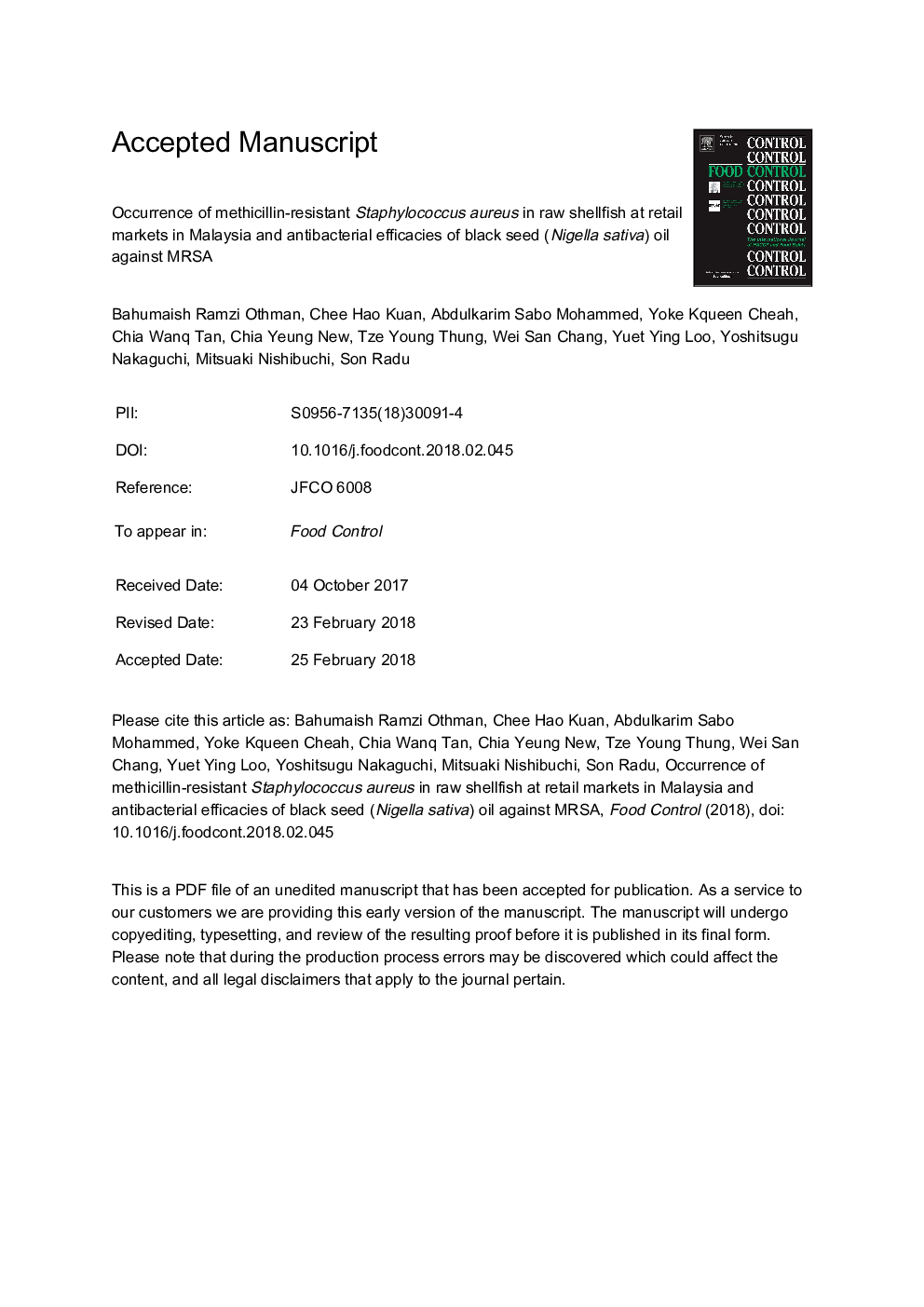| Article ID | Journal | Published Year | Pages | File Type |
|---|---|---|---|---|
| 8888005 | Food Control | 2018 | 32 Pages |
Abstract
Methicillin-resistant Staphylococcus aureus (MRSA) is a remarkable pathogen which causes nosocomial diseases worldwide. In this study, raw green mussel and cockle samples in Malaysia were collected and investigated for the occurrence of MRSA. A total of 80 samples were analyzed using phenotypic and molecular approaches. A assembling of the most probable number (MPN) with multiplex polymerase chain reaction (mPCR) technique was used to identify MRSA in the samples. The occurrences of S. aureus and MRSA in shellfish samples were 15% and 8.75%, respectively, with the microbial load from <3 to 12.2 MPN/g. MRSA isolates were tested for their sensitivity to 17 generally used antibiotic agents by using disc diffusion assay. All the isolates were resistant to amikacin and penicillin. However, sensitivity was recorded for cefoxitin, ceftaroline, chloramphenicol, ciprofloxacin, clarithromycin levofloxacin, linezolid, ofloxacin, quinupristin/dalfopristin, tetracycline and trimethoprim-sulfamethoxazole. Moreover, the antimicrobial activities against MRSA were evaluated using minimum inhibited concentration (MIC) and minimum bactericidal concentration (MBC). The findings revealed that the black seed oil acted as a potent inhibitor of MRSA. The lowest value of MIC and MBC of black seed oil against MRSA was 32.8 and 42.2â¯mg/mL, respectively. The detection of MRSA in this study deserves a public attention because shellfish are commonly eaten raw or partially cooked in Malaysia.
Keywords
Related Topics
Life Sciences
Agricultural and Biological Sciences
Food Science
Authors
Bahumaish Ramzi Othman, Chee Hao Kuan, Abdulkarim Sabo Mohammed, Yoke Kqueen Cheah, Chia Wanq Tan, Chia Yeung New, Tze Young Thung, Wei San Chang, Yuet Ying Loo, Yoshitsugu Nakaguchi, Mitsuaki Nishibuchi, Son Radu,
